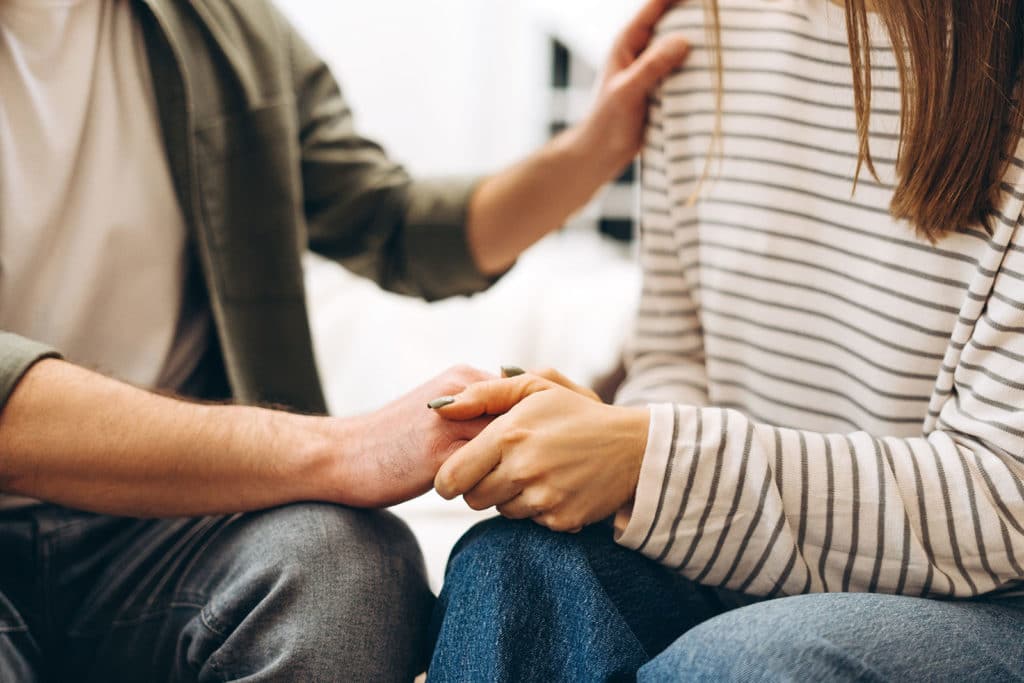Addiction Aftercare Programs That Work
Completing a rehabilitation program is a significant milestone in your recovery journey, but it’s just the beginning of a lifelong commitment to sobriety.
According to the National Institute on Drug Abuse (NIDA), approximately 40-60% of people in recovery experience a relapse at some point. Does that mean there’s no hope for them? Not at all. It just means that ongoing support and aftercare are fundamental for long-term success.
This comprehensive guide will walk you through the essential steps of staying sober and rebuilding your life after rehab.
Table of Contents
- Why the First 90 Days Matter Most
- Intensive Outpatient Programs (IOP): A New Beginning
- Peer Support Groups: The Healing Power of Connection
- Sober Living: Stability During Transition
- Ongoing Therapy: Addressing the Roots of Addiction
- 12-Step Groups: Finding Your Recovery Community
- The Art of Rebuilding: Routines, Relationships, and Responsibility
- Dealing with Cravings: Practical Strategies That Work
- Making Amends: Healing Important Relationships
- Alumni Programs: Staying Connected to Your Recovery Community
- Taking Your Next Steps: Your Recovery Action Plan
- Navigating Life After Rehab? You’re Not Alone.
- Final Thoughts
Why the First 90 Days Matter Most
The first three months after leaving rehab are often the most vulnerable stage in recovery.

According to various studies, the odds of regressing are highest during this period. This critical window is when the mind and body are still recalibrating.
The brain continues to heal from the chemical imbalances caused by substance use, and the individual is learning to function without the crutch of addiction.
At the same time, familiar environments, routines, and people can resurface as powerful triggers. Plus, the coping skills that were introduced in rehab are still untested in the real world.
That’s why structure, accountability, and a strong support network are essential during this period. It’s not just to avoid relapse, but to start laying the groundwork for long-term recovery.
The good news is that committing to an aftercare program increases the success rate to around 70%.
Intensive Outpatient Programs (IOP): A New Beginning
If you’re not quite ready for full independence after inpatient rehab, an Intensive Outpatient Program (IOP) may be the ideal bridge.
IOPs offer the flexibility to live at home or in a sober living facility while attending structured treatment several days a week. A study in Psychiatric Services found that patients who attended IOPs had comparable outcomes to those in residential treatment, especially when paired with support groups and therapy.
The structured nature of IOP provides several advantages:
Flexibility: Unlike residential treatment, IOP allows you to practice recovery skills in real-world situations while maintaining access to professional support.
Gradual Transition: The program serves as a stepping stone between intensive treatment and complete independence, reducing the shock of sudden change.
Peer Support: Group therapy sessions connect you with others facing similar challenges, creating a supportive community.
Family Involvement: Many IOPs include family therapy components, helping to repair relationships and educate loved ones about addiction and recovery.
Skill Building: Programs focus on practical life skills like communication, stress management, and relapse prevention.
Peer Support Groups: The Healing Power of Connection
Recovery can feel deeply isolating, especially if your previous social life was tied to substance use.
Peer support groups help bridge that gap by offering a safe, judgment-free space where individuals can share their experiences, offer guidance, and feel genuinely understood.

There are several types of support groups tailored to different beliefs and preferences. SMART Recovery, for example, uses evidence-based strategies to help individuals manage their behaviour and thoughts.
Celebrate Recovery integrates faith-based principles into the healing process, making it a meaningful option for those with spiritual inclinations. For those seeking a secular path, LifeRing Secular Recovery offers support without any religious framework.
These groups typically meet on a weekly basis online. You can also join a support group in a recovery center near you, which is often more convenient and beneficial.
Research published in Substance Abuse found that individuals who participated in mutual support groups experienced stronger long-term abstinence outcomes. This demonstrates the powerful role of connection in sustained recovery.
Sober Living: Stability During Transition
After completing rehab, many people find that returning directly to their old environment can be overwhelming and risky.
Sober living programs are designed to reduce exposure to triggers while encouraging accountability through house rules, curfews, and regular drug testing. They create a rhythm of responsibility and routine, which can be incredibly grounding during early recovery.
Living alongside others on a similar path also helps rebuild social skills and provides a sense of shared purpose that combats the isolation many feel after rehab.
House managers often live on-site to guide residents and help resolve conflicts, further reinforcing a safe, recovery-oriented environment.
A study published in the Journal of Psychoactive Drugs reported significant improvements in employment, reduced arrests, and lower substance use. These results were evident among individuals who stayed in sober living homes for at least six months.
Ongoing Therapy: Addressing the Roots of Addiction
Addiction doesn’t exist in a vacuum. It’s often tied to trauma, mental health conditions, or unresolved emotional pain. That’s why continuing therapy post-rehab is non-negotiable.
Common therapy types in aftercare include:
- Cognitive Behavioural Therapy (CBT): Helps rewire negative thought patterns
- Dialectical Behaviour Therapy (DBT): Teaches emotional regulation and distress tolerance
- Trauma-informed therapy: Especially beneficial for those with a history of abuse or PTSD
Therapy offers a space to explore your triggers, navigate difficult emotions, and strengthen coping strategies.
12-Step Groups: Finding Your Recovery Community
Tried and tested since the 1930s, 12-step programs like Alcoholics Anonymous (AA) and Narcotics Anonymous (NA) remain a cornerstone of recovery for millions worldwide.

These programs follow principles such as:
- Acknowledging powerlessness over addiction
- Seeking spiritual growth (not necessarily religious)
- Making amends
- Supporting others in recovery
What makes 12-step groups powerful isn’t just the steps; it’s the sense of belonging. A 2020 Cochrane Review found that 12-step facilitation treatments led to higher rates of continuous abstinence than other therapies.
The Art of Rebuilding: Routines, Relationships, and Responsibility
Life after rehab aims for more than avoiding substances. The bigger goal is creating a life that feels worth staying sober for.
Here’s what rebuilding can look like:
- Routines: Regular sleep, meals, and exercise promote mental clarity and stability.
- Relationships: Cut ties with toxic influences and nurture healthy connections.
- Responsibility: Taking on small tasks or jobs builds confidence and purpose.
Start small. Make your bed, show up on time, follow through. These seemingly minor habits stack up into a more meaningful life.
Dealing with Cravings: Practical Strategies That Work
Cravings are a normal part of recovery, especially in the early months. They’re often triggered by stress, certain people or places, emotions, or even positive experiences that you previously associated with substance use.
Understanding that cravings are temporary and manageable helps reduce their power over you.
Here are practical tips to overcome these urges:
- HALT Check: Ask yourself if you’re Hungry, Angry, Lonely, or Tired—these can mimic cravings.
- Urge Surfing: Ride the wave of discomfort rather than acting on it.
- Distraction Techniques: Go for a walk, call a friend, or journal your thoughts.
- Mindfulness and breathing: These calm the nervous system and reduce impulsivity.
A quick craving toolkit can include simple items like sugar-free chewing gum, a fidget toy, and aromatherapy oils. You can also have some cold water or an icy drink. Finally, a recovery phone contact list can be a real lifesaver.
According to Psychology Today, cravings typically last 20-30 minutes, longer only if you engage them mentally.
Making Amends: Healing Important Relationships
Addiction often leaves a trail of hurt, broken trust, and strained connections with loved ones.

Making amends is a powerful step toward healing these relationships, not just for others, but for your own peace of mind. It begins with honest reflection on the ways your actions may have caused harm, followed by a sincere effort to take responsibility without making excuses.
Reaching out to someone you’ve hurt can be uncomfortable, especially when you’re unsure how they’ll respond.
You can’t control the outcome. But it’s important to show genuine remorse. Sometimes, making amends means offering a heartfelt apology and then giving the other person space to decide how—or if—they want to move forward.
In more complex or emotionally charged situations, involving a therapist or recovery sponsor can help guide the conversation in a healthy and respectful way.
Even when relationships aren’t fully restored, the courage to take ownership often brings a sense of closure and emotional freedom that’s essential for long-term recovery.
Alumni Programs: Staying Connected to Your Recovery Community
Many rehab centres offer alumni programs to help graduates stay connected. These might include:
- Monthly meetups or events
- Volunteering opportunities
- Guest speaker series
- Online support groups
Alumni programs typically include regular meetings, social events, educational workshops, mentoring opportunities, and sometimes job networking.
They provide a way to give back to newer members while receiving continued support from peers who are further along in their recovery journey.
Taking Your Next Steps: Your Recovery Action Plan
No two recovery journeys are alike, but a personal action plan helps keep you grounded and goal-focused.
Here’s a sample Recovery Action Plan in 5 steps:
- Define your ‘why’ – What does sobriety allow you to do that addiction didn’t?
- Schedule support – Include therapy, meetings, and sober activities.
- Set personal goals – Health, career, relationships, hobbies.
- Identify triggers and coping strategies – Write them down!
- Track your progress – Use journals or apps to reflect and adjust.
Recovery doesn’t demand perfection. All you need is a true north and staying the course. Celebrate small wins and take it one day at a time.
Whether you’re adjusting to sobriety or facing new challenges, the team at Illinois Recovery Center is here to help you stay on track and build a fulfilling life in recovery.
(888) 472-5004Confidential guidance. Lifelong support. Start your next chapter today.

Final Thoughts
Recovery doesn’t end when rehab does. It evolves into a new way of living. Whether you’re in your first 90 days or further along your journey, having the right support makes all the difference.
If you’re looking for compassionate, evidence-based care to help you stay on track, the Illinois Recovery Center is here for you. Our team is committed to helping you rebuild a life that feels happy, purposeful, and sustainable.
You don’t have to do this alone. Reach out today and take your next steps with people who truly understand the road you’re on and are ready to walk it with you.



